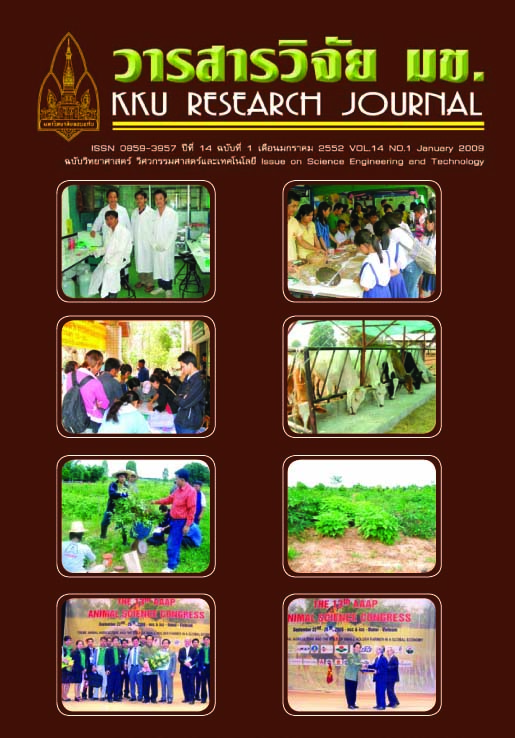Effect of sludge retention time on efficiencies of wastewater treatment in sequencing batch reactor (Thai)
Main Article Content
Abstract
This study measured the effect of sludge retention time (SRT) on wastewater treatment efficiency in a sequencing batch reactor (SBR). Three SBRs were operated in parallel at different SRT values of 5, 10 and 15 days. The SBR cycle was 12 h (fill 1 h, aeration 8 h, settle 2 h and draw/idle 1 h). The results show that there was no significant difference in terms of COD and NH4 -N removal efficiencies at organic loading of 0.58 kgCOD/m3 .d and ammonia-nitrogen loading of 0.14 kgNH3 -N/m3 .d, respectively. The average COD and NH4 - N removal efficiencies were 90% and 69%. The nitrification and de-nitrification reactions were found to occur for at least 10 days of SRT. The suspended solids in the effluent at SRT of 5 and 10 days were under the domestic effluent standard. SVI increased with increasing SRT. The protein in extracellular polymeric substance (EPS) decreased with increasing SRT. It was concluded that the SRT of 10 days is most suitable for wastewater treatment in a sequencing batch reactor system.


